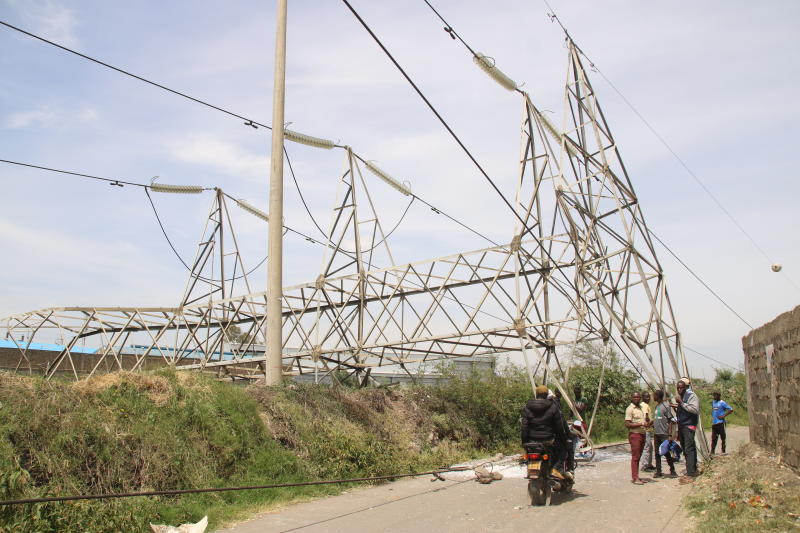×
The Standard e-Paper
Join Thousands Daily

High voltage transmission powerline near Imara Daima Railway Station that fell causing a power outage on January 11, 2022 [David Gichuru, Standard]
Kenya Power has in the last six months lost an estimated Sh12 million due to transformer vandalism in western Kenya.